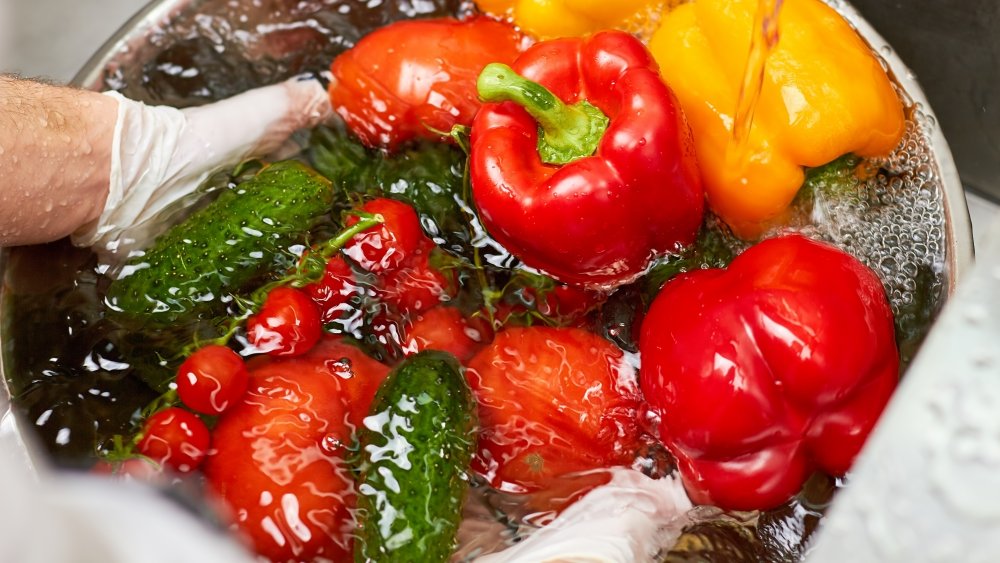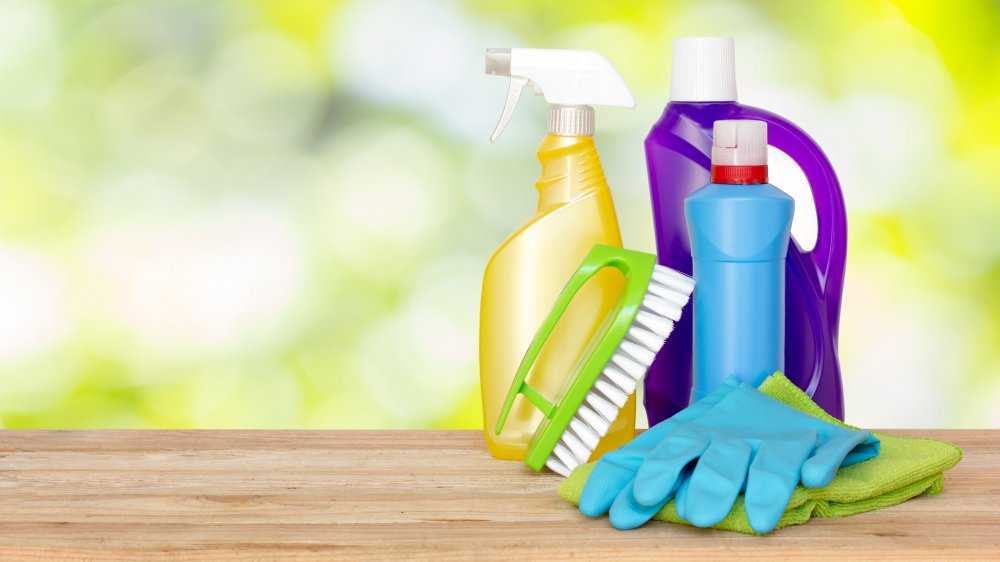The Real Reason You Shouldn't Rinse Your Produce In Bleach
Even though experts have reiterated that the likelihood of acquiring COVID-19 through food is extremely low, some consumers have apparently remained unclear on proper protocol when it comes to ensuring the safety of their fresh fruits and veggies.
Alarmed by "a sharp increase in calls to poison centers related to exposures to cleaners and disinfectants" since coronavirus became a nationwide concern this year, the CDC conducted a related survey in early May and published the somewhat surprising results last week. The study found that 39 percent of the 502 respondents purposely practiced one or more "high-risk" tactics for preventing the spread of SARS-CoV-2 at home, with almost one in five (19 percent) having applied bleach to fresh produce.
While this method is clearly not recommended by the CDC, perhaps some of the confusion stemmed from suggestions like using a "very diluted bleach solution (one teaspoon of bleach per gallon of water) to mist produce," as one food safety expert recommended in a newsletter from The New York Times (via Insider). However, while there are ways to safely wash produce in pandemic times (and general guidelines that are useful anytime), bleach should never enter the equation.
The dangers of using bleach for cleaning produce
Generally, Colorado State University notes that water alone safely washes produce — simply "rub fruits and vegetables briskly" under a running faucet to shed any dirt or microorganisms, or scrub hard-skinned types (like potatoes) with a clean brush. These recommendations also warn that detergent or bleach solutions can be harmful, because the porous nature of many fruits and veggies will lead to the absorption of chemicals which can change their safety as well as taste.
Though Oklahoma State University explains that a very diluted "chlorine bleach solution" may be used for cleaning produce in the manufacturing industry, these solutions must be labeled as "food-grade" — as opposed to common household bleaches, which can harbor "fragrances, thickeners, and/or other additives not approved for food use."
Dr. Tamika Sims, the director of food technology communications for the International Food Information Council, puts it plainly: "Bleach is not meant to be used to clean any foods or food products," she said. "The ingestion of any amount of bleach can be a major health hazard," possibly causing skin, eye, mouth, or throat irritation.
Instead, simply cook the produce or wash in warm water before consuming, as Sims notes that the virus doesn't hold up to higher temperatures. These are easier and safer (nonchemical) solutions for sanitizing your latest fruit and veggie haul from the market.

